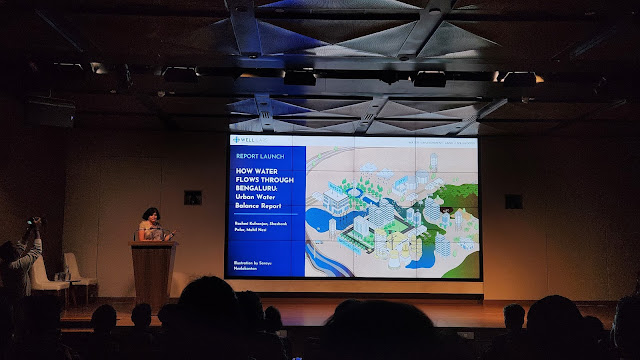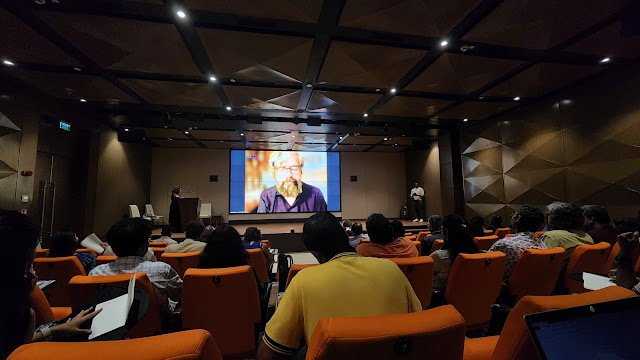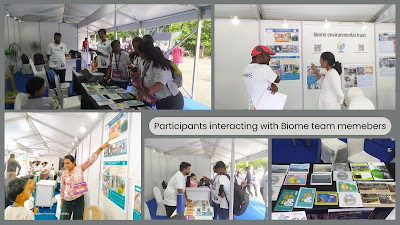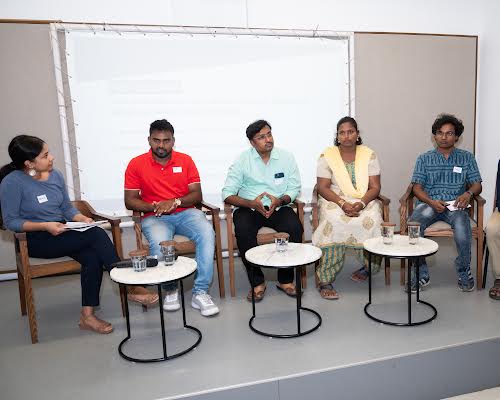The conference, titled "Building Water Resilient Cities: Strategies for Wastewater Reuse in India," brought together a diverse group of stakeholders in water management and urban planning. The focus was on diagnosing problems in urban planning and wastewater reuse issues for Bangalore and other urban cities in India. The aim was to ensure that urban populations meet their water needs while safeguarding water resources.
The conference was hosted by the Well Labs Team. The event was co-organized by the Swiss Federal Institute of Aquatic Science and Technology, the Bangalore Apartments Federation, and Well Labs, which works on land and water sustainability solutions.
The keynote speaker, Sri BP Ravi, Principal Secretary of Ecology and Environment of Karnataka, emphasized the importance of using treated wastewater to build long-term water resilience. He highlighted the challenges and barriers in utilizing wastewater effectively, urging apartment federations to reuse water and reduce the strain on natural resources.
A report on Bangalore's water balance was presented, exploring alternative pathways for meeting the city's water demand without increasing supply from the Cauvery River. The report also addressed the dual nature of Bangalore's water crisis: flooding and water scarcity.
Experts from various fields shared insights on effective wastewater management. The discussion revolved around decentralized wastewater treatment, technological advancements, policy challenges, and the importance of community involvement in sustainable water management practices.
Overall, the conference provided a platform for sharing knowledge and experiences, and it advocated for collaborative efforts to address water management challenges in rapidly growing urban areas.
The panelists discussed various aspects of wastewater treatment and reuse in the context of urban India, with a focus on Bangalore. Key points from the discussion included:
- Challenges with Existing Decentralized STPs: A significant portion of the existing small-scale Sewage Treatment Plants (STPs) in Bangalore are not functioning effectively. This is attributed to factors like poor design, lack of proper maintenance, and inadequate regulatory enforcement.
- Economics of Wastewater Treatment: The cost of maintaining an STP, particularly smaller ones, is high, making it economically unviable for some communities. There's a need for more cost-effective and efficient solutions, especially for smaller apartment complexes.
- Regulatory Aspects and Incentives: The panelists emphasized the need for clearer regulatory frameworks and incentives to encourage better wastewater management practices. There were suggestions to incentivize not just builders but also Resident Welfare Associations (RWAs) and communities who maintain these systems.
- Role of Technology and Consultants: The choice of technology and the role of consultants in designing STPs are crucial. There's a call for reliable and accessible technology literature and guidelines to help in the selection of appropriate wastewater treatment technologies.
- Nature-Based Solutions: The panel also touched upon the potential role of nature-based solutions like wetlands in complementing technological solutions for wastewater treatment and reuse.
- Reuse of Treated Wastewater: There was a discussion about the potential for reusing treated wastewater for non-potable purposes like gardening, construction, and other neighbourhood needs. However, logistical challenges, such as transportation and seasonal variability in demand, were highlighted.
- Risk Analysis and Public Health Concerns: The panelists pointed out the lack of risk analysis in the current approach, especially concerning public health risks associated with improperly treated wastewater.
- Scaling Solutions and Infrastructure Needs: The discussion also included the need for scalable solutions, possibly looking at hyperlocal centralization rather than individual apartment-level treatment plants.
- Design and Operation Challenges: There's a disconnect between the design, construction, and operation of sewage treatment plants (STPs). Often, those who design and those who operate these systems are not in sync, leading to operational challenges.

- Nexus Skills and Stakeholder Involvement: There is a lack of collaboration among different stakeholders, including government, consultants, developers, and technology providers. Incentives should be aligned not just for builders and technology providers, but also for end-users, to encourage more sustainable practices.
- Regulatory Framework: The regulatory framework, while comprehensive, often faces challenges in implementation. There's a need for more practical approaches and incentives for compliance.
- Training and Capacity Building: Initiatives like training programs for STP operators and helpers by the Karnataka State Pollution Control Board are crucial for improving the operation and maintenance of STPs.
- Standards for Reuse of Treated Wastewater: There is a necessity for in-depth studies and standardization for the reuse of treated wastewater, especially in construction. Standards like IS 456:2000 and IS 3025:1978 provide guidelines, but more specific standards tailored to treated wastewater are required.
- Voluntary Adoption versus Mandates: Market-driven, voluntary adoption of treated wastewater is preferred over mandatory regulations. Mandatory approaches have not been very effective in the past.
- Impact on Urban Flooding: The disposal of treated wastewater into stormwater drains can exacerbate urban flooding issues. Proper urban drainage systems need to be studied and redesigned to address this.
- Public Awareness and Value of Water: There is a need to enhance public awareness regarding the value of water and the importance of its reuse.
- Challenges in Matching Supply and Demand: A major challenge highlighted was the geographical mismatch between the sources of treated wastewater and the demand areas, such as construction sites. Solutions like decentralized treatment and logistics services like Tanker-Wala have been effective in bridging this gap.
- Quality Standards and Testing: The importance of maintaining and verifying the quality of treated wastewater was emphasized. Tanker-Wala, for instance, has set up micro-labs at construction sites to test every water load for parameters like pH, alkalinity, chlorides, and sulfates. This approach not only ensures safety and compliance but also helps in building trust among users.
- Market and Behavioral Responses: Exploring new applications for treated wastewater in industries beyond construction was discussed. While there's potential, behavioural barriers and market dynamics play a significant role. Educating and building awareness among users, like construction workers, about the safety and benefits of using treated wastewater is crucial.
 Regulatory and Social Considerations: The panel touched upon the evolving regulatory landscape and how mandates in cities like Pune have encouraged the use of treated wastewater. However, there are broader social issues related to sanitation workers and the conditions in which they work. The need for investment in their well-being and training was acknowledged as an integral part of the wastewater management ecosystem.
Regulatory and Social Considerations: The panel touched upon the evolving regulatory landscape and how mandates in cities like Pune have encouraged the use of treated wastewater. However, there are broader social issues related to sanitation workers and the conditions in which they work. The need for investment in their well-being and training was acknowledged as an integral part of the wastewater management ecosystem.- Sustainability Goals of Real Estate Developers: Some real estate developers, like Brigade Group, have set targets to become water-positive and are exploring the use of treated wastewater in their projects. This shift also aligns with their sustainability goals and market demands for more environmentally responsible properties.
- Potential for Wider Adoption: Despite the challenges, there is optimism about the scalability of treated wastewater reuse. With technological advancements, stricter regulations, and increasing water scarcity, more industries and residential complexes are likely to adopt these practices.
















.png)







.png)







